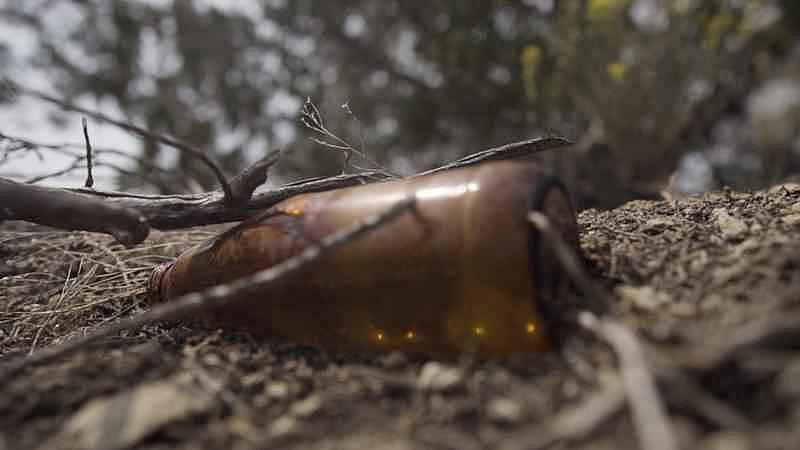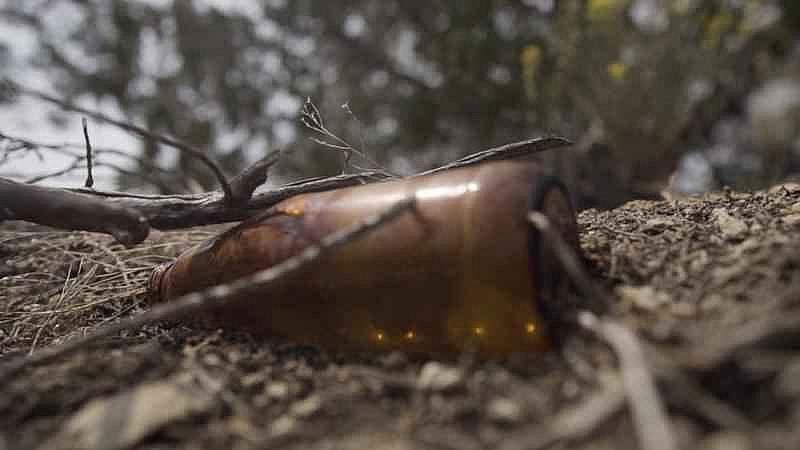Substance abuse complicating COVID-19 fight on Navajo Nation
This story was produced as part of a larger project led by Nathan O'Neal and Colton Shone, participants in the 2020 National Fellowship, that cover the variety of circumstances that contribute to health disparities in the Navajo Nation.
Their other stories include:
The People vs. the Pandemic: Overlooked
The People vs. the Pandemic: Addiction
Navajo mother has reservations about sending her children back to school
Tribal officials report progress on CARES Act projects on Navajo Nation
How the Navajo People are using culture to fight back against 'Covid Monster'
How far will CARES Act money go in solving the Navajo Nation water crisis?
The People vs. The Pandemic: The fight against the virus on Navajo Nation

Substance abuse complicating COVID-19 fight on Navajo Nation |
ALBUQUERQUE, N.M.- Gerald Chee isn't shy about his battles with substance abuse.
Chee, who lives on the Navajo Nation, said he believes he got COVID-19 while partying with others.
“We know what’s going on about the virus and everything, trying to keep our hands clean. Especially going to store, get back into truck or car, use hand sanitizer, wipe down bottle, cans and stuff before drinking it,” he said.
Substance abuse complicating COVID-19 fight on Navajo Nation |
Chee believes the weeks he spent in a little hotel room recovering from COVID-19 has helped in other aspects of his life.
“It’s hard because a lot of people I know drink. Everywhere I go. Family members drink, friends around town," said Chee.
Chee is one of hundreds of patients in the HEAL Initiative, which is run by doctors from The University of California, San Francisco. Overflow COVID-19 patients from the Navajo Nation are brought there to recover.
“We completed isolation on the 24th, so we just finished up on Monday,” said Dr. Samuel Hatfield who checked in on Chee.
“I signed up for a boarder,” Chee said.
A boarder is someone whose chooses to stay longer. Chee, who is no longer contagious, is waiting to be moved to a rehab facility to treat his alcoholism.
Nearly 30 others in the hotel program made the same decision.
"There’s definitely a huge benefit to having this,” said Dr. Hatfield.
Officials say alcoholism is another epidemic they've been dealing with for decades. Homeless camps with empty booze bottles are easily found across the City of Gallup, which may have contributed to the spread of COVID-19.
"People are walking around in the streets, they're not social distancing, they're not wearing masks, They're sharing alcohol with each other, they're shaking hands and it just exploded the amount of people getting COVID," said Dr. Kevin Foley who is the executive director of NCI Detox Center.
Na’Nizhoozhi Center Inc. (NCI) is one place that’s been treating alcoholism for decades. Na’Nizhoozhi is Navajo for the word bridge. They call the center the bridge to recovery.
"It's very rewarding when people get sober,” said Dr. Foley.
People who are publicly intoxicated are taken to the center to detox. The 150 bed facility can be quickly overrun during certain times of the year. Dr. Foley says they had to shut down temporarily when COVID-19 first stuck because of the number of positive patients.
“A lot of my staff were afraid, some of them did get COVID, some of them quit, some of them had to go into 14 day quarantine themselves,” he said.
He said the pandemic has highlighted the many health disparities among Native communities.
"You can see the statistics are all over the place with diabetes, heart disease affecting Native Americans disproportionately,” said Dr. Foley. “There's actually over 30 percent of Navajos that have never touched alcohol in their entire life."
But the reason for the treatment center is clear. State health officials say Native Americans had the highest alcohol-related deaths over a five-year period. The epicenter? McKinley County.
With COVID-19, Dr. Foley says there's been a shift with more people wearing masks. But he worries about a possible second wave of COVID-19 in the colder months and that could put a huge drain on existing resources.
"There's always a need here there's an extreme need actually,” Foley said.
Chee says he's done with that life. For him, it's about resilience and to live the Navajo ideology of walking in beauty.
"I'm tired of drinking, I've been drinking for a long time, and I just want to sober up and change my life you know,” he said.
Colton Shone is a National Health Journalism Fellow. This story was made possible via partnership with the University of Southern California - Annenberg's Center for Health Journalism.
[This story was originally published by KOB4].

